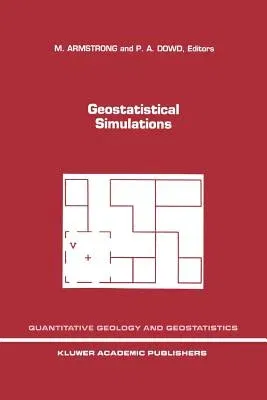Geostatistical Simulations: Proceedings of the Geostatistical Simulation Workshop, Fontainebleau, France, 27-28 May 1993Paperback, 4 December 2010

Qty
1
Turbo
Ships in 2 - 3 days
In Stock
Free Delivery
Cash on Delivery
15 Days
Free Returns
Secure Checkout
Part of Series
Quantitative Geology and Geostatistics
Print Length
258 pages
Language
English
Publisher
Springer
Date Published
4 Dec 2010
ISBN-10
9048143721
ISBN-13
9789048143726
Description
Product Details
Book Format:
Paperback
Country of Origin:
NL
Date Published:
4 December 2010
Dimensions:
23.39 x
15.6 x
1.45 cm
ISBN-10:
9048143721
ISBN-13:
9789048143726
Language:
English
Location:
Dordrecht
Pages:
258
Publisher:
Weight:
385.55 gm

